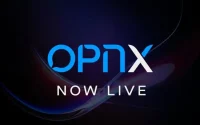Rivet: Open-Source Wallet For Ethereum
Paradigm, a leading name in the realm of blockchain and cryptocurrency technology, has unveiled a significant milestone with the introduction of Rivet’s alpha release. Rivet, an innovative and open-source developer wallet and toolset tailored for EVM-based (Ethereum Virtual Machine) chains, promises to reshape the landscape of Ethereum development by providing a powerful platform for testing, debugging, and enhancing Decentralized Applications (DApps).
Read the full announcement on the @paradigm website.https://t.co/xXgY55fHnR
— Georgios Konstantopoulos (@gakonst) August 26, 2023
Integration with Foundry’s Anvil
The announcement, detailed in a blog post on Paradigm’s website, showcases Rivet’s potential to revolutionize frontend Ethereum development and elevate productivity for developers across the globe. Positioned as the “DevTools for Ethereum,” Rivet boasts a distinctive attribute – a close-knit integration with Foundry’s Anvil. This partnership empowers developers to engage in profound testing, meticulous debugging, and strategic modifications within their DApps. Rivet emerges as a browser extension that seamlessly connects users to Ethereum applications, furnishing a spectrum of wallet features including address management, transaction signing, submission, and transaction history review.
The impetus behind Rivet’s creation derives from two core motivations. Firstly, the prevailing challenges encountered while developing against a local Ethereum node with consumer wallets spurred the need for a more developer-centric solution. Ordinary wallets often fall short in handling rapid state changes and restarts that characterize local Ethereum nodes. This can lead to synchronization issues and poor responsiveness, thereby hindering efficient debugging.
Rivet’s Local Node Debugging
Secondly, developers frequently grapple with debugging against testnets or the mainnet, both of which come with their own set of trade-offs. Rivet aims to mitigate these challenges by encouraging the adoption of best practices, like introspection, testing, and debugging against a locally-forked Ethereum node. By facilitating end-to-end work with local nodes, Rivet opens doors to functionality that conventional consumer wallets lack, ultimately streamlining the development process.
Read More: JPMorgan Predicts Crypto Market Rebound
The distinctiveness of Rivet lies in its symbiotic relationship with Foundry’s Anvil. This synergy enhances its capabilities, enabling comprehensive testing and modification within DApps. Drawing an analogy, Rivet’s role is akin to that of revered developer tools like “React DevTools” or browser “Developer Tools,” serving as a crucial asset for Ethereum developers seeking to refine their applications.



